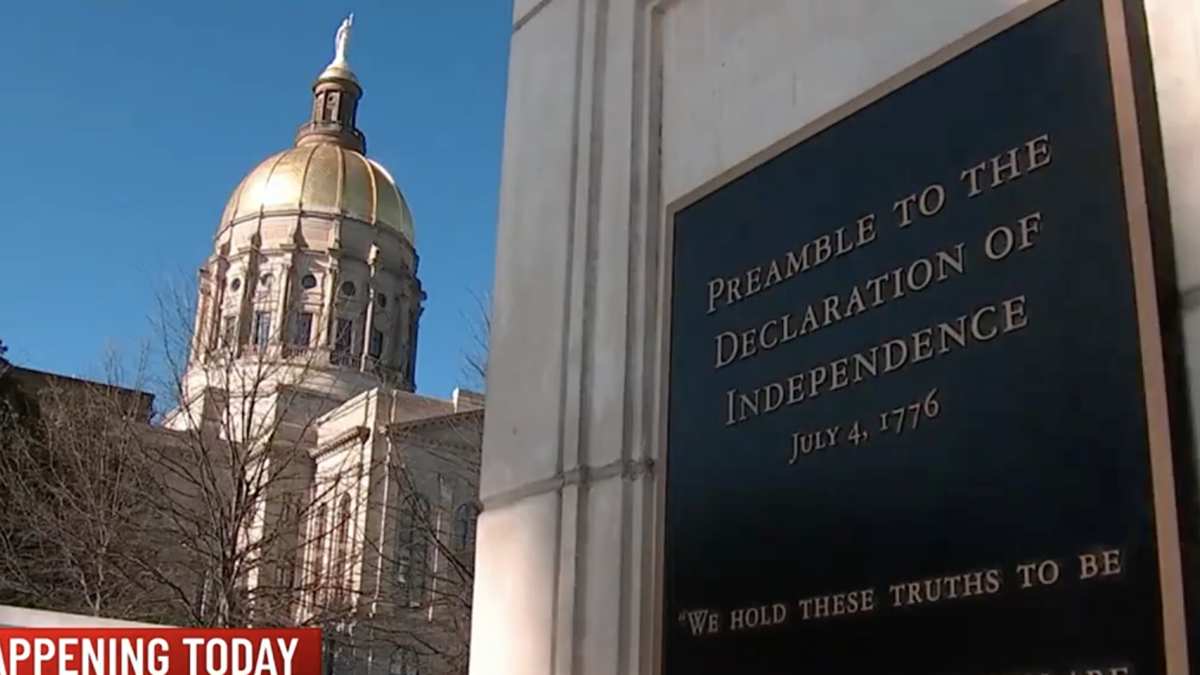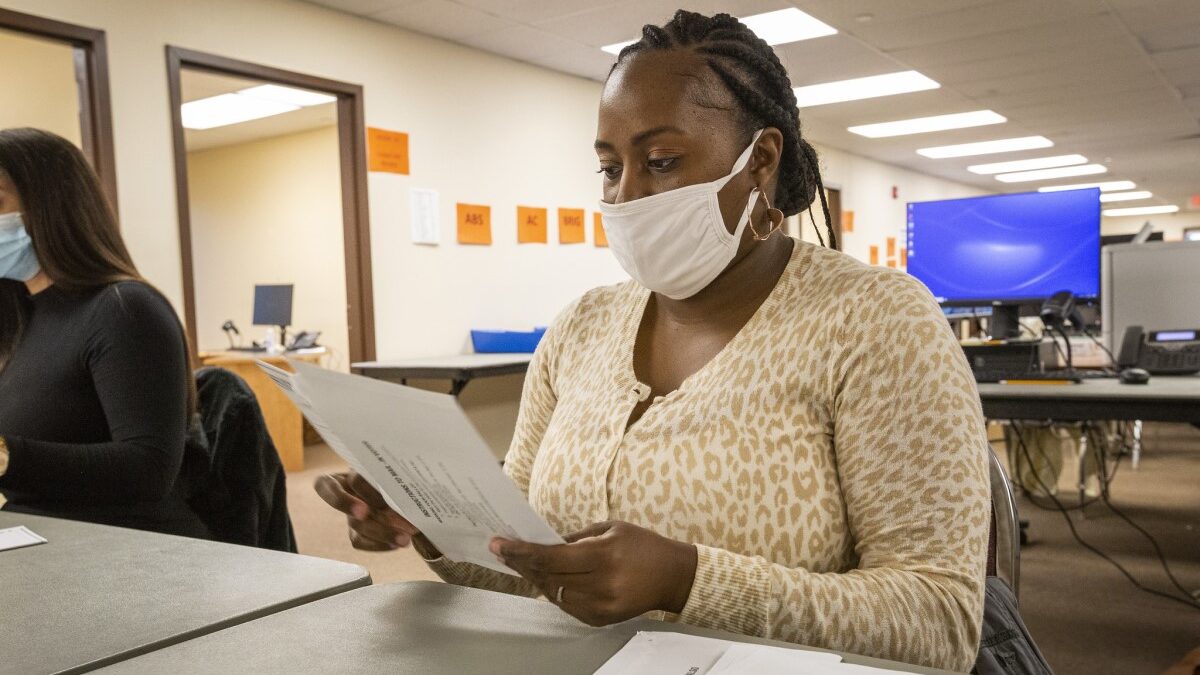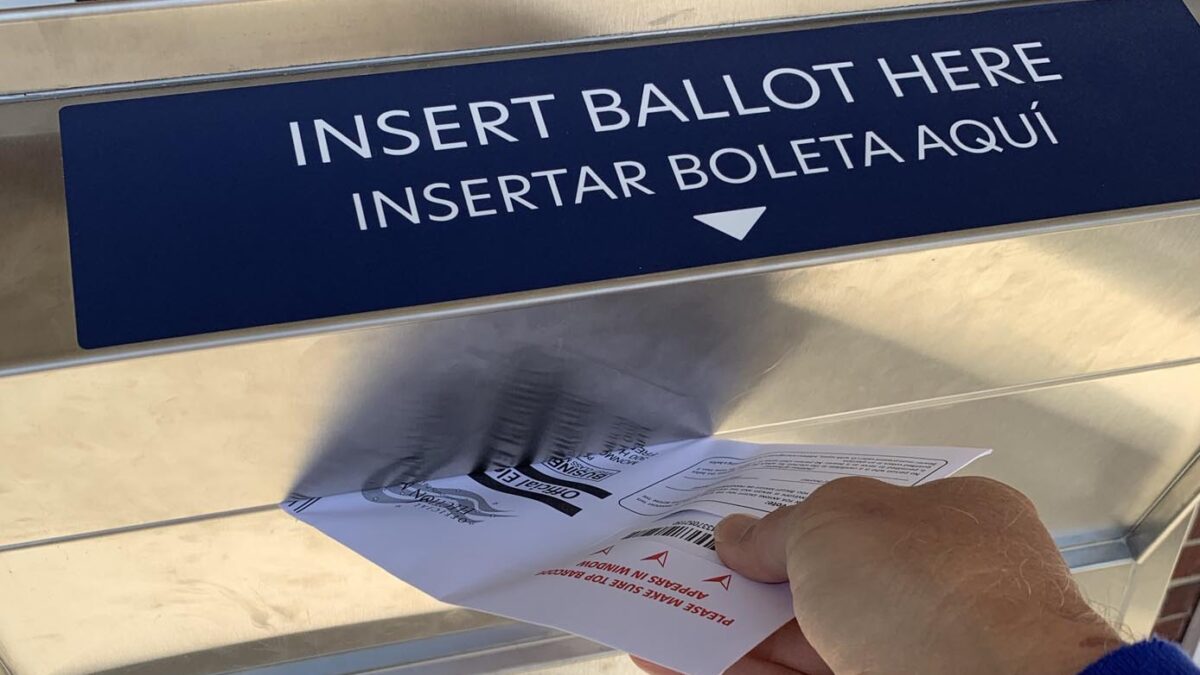It took some wheeling and dealing, but Georgia lawmakers passed significant election integrity bills last week — just in the nick of time.
As The Federalist reported last week, the Georgia State Senate was prepared to take up House Bill 976 — a meat and potatoes election integrity package — on the final day of the General Assembly’s session. As is often the case in legislation facing Sine Die, it took some maneuvering to get the package over the finish line. Lawmakers added the provisions of HB 976 to Senate Bill 189 and passed the latter in the House before it went back to the Senate — just as the clock was ticking down on the session.
“I’m proud of (GOP) Chairman Josh McKoon and our GOP Election Confidence Task Force and grassroots volunteers who have been working hard for the last two years to improve on an already very good SB 202,” Brad Carver, Atlanta attorney and chairman of the Georgia GOP’s Election Confidence Task Force, told me.
The panel was created in the wake of the “dramatic weaknesses” exposed in Georgia’s election administration following the pandemic-influenced 2020 general election. SB 202, or the Election Integrity Act of 2021, fixed a good deal of what needed fixing in the Peach State’s election administration, which was riddled with irregularities and integrity failures. But advocates for free and fair elections still needed to deal with Georgia’s bloated voter rolls and public accountability measures to restore confidence in elections.
“We had a number of priorities that we have accomplished, but we prioritized cleaning the voter rolls above all else because we believe every legal vote in Georgia should count and should not be diminished by illegitimate votes,” Carver added.
The latest election integrity measures under the auspices of Senate Bill 189 make ballots cast, upon certification, public record, allowing election watchers to verify results and detect counterfeit ballots. That’s a solid step forward from the current system, where the ballots are secretly counted in the machines.
Another provision strengthens the ballot chain of custody by ensuring there are no gaps in the ballot handling process. The protection should go a long way in preventing fraudulent ballots from being injected, longtime election integrity activist Garland Favorito said before last Thursday’s 11th-hour vote.
“Those two provisions will solve problems that occurred in the past,” the elections watchdog added.
House Bill 976 also lays out standards for when parties and individuals may challenge invalid voter roll records. The bill allows challenges to those seeking to register to vote who are without a permanent residential address, reside outside the election jurisdiction, or have declared a homestead exemption in a different municipality or county, among other probable causes for a challenge.
Leftist activists have attacked such challenges as assaults on “democracy and the freedom to vote.” The bill, awaiting the signature of Gov. Brian Kemp, “adds new anti-democracy gimmicks to the existing repressive law, the Voting Integrity Act,” according to The American Prospect, a publication co-founded by leftist Robert Reich, in a piece headlined, “Georgia’s Latest Attack on the Right to Vote.”
The voter integrity measure applies a set of standards to challenge a vote, which any Georgia voter may do if she suspects potential fraud. Favorito said 95 percent of the challenges do not involve voters but voting roll records that do not truly represent an actual voter.
“This shouldn’t be controversial, but counties are refusing to remove the invalid voter roll records even when faced with corroborating evidence that the record is invalid,” he said, noting the tens of thousands of invalid voter records in each of Georgia’s major metro counties.
The ACLU of Georgia has threatened to sue if Kemp signs the bill into law. The governor is expected to do just that in the coming days.
The Republican-controlled Senate also passed House Bill 974, which requires that ballots in optical scan voting systems use a visible watermark security feature. It also calls for the secretary of state’s office to post ballot images online and expands the number of elections subject to risk-limiting, post-election audits.
Another bill making the cut last week requires Georgia elections workers to be U.S. citizens and includes protections for poll watchers and poll workers.
Senate Ethics Committee Chairman Max Burns, a Republican, told his colleagues that while election bills are known to “get a bit testy,” HB 1207 is “about as noncontroversial as they come.” It passed on a mostly party-line vote after some contentious debate.
A bill barring foreign nationals from cutting checks to Georgia politicians, campaigns, and political action committees is also awaiting the governor’s signature.
A proposal that would have given the State Election Board the power to investigate Georgia’s secretary of state died a painful death before the session’s end.
As my colleague Brianna Lyman reported, the Senate earlier this year passed SB 358, which would have severed the secretary of state’s role as “ex officio nonvoting member” of the board. Doing so would give board members the authority to “investigate the Secretary of State” and “require the Secretary of State to cooperate with certain investigations.”
But the House Committee on Governmental Affairs instead pushed a “substitute” bill unrelated to the original measure, The Federalist reported. Secretary of State Brad Raffensperger had objected to the proposal. House Republicans caved.






